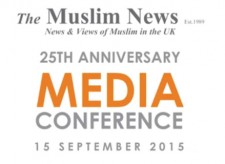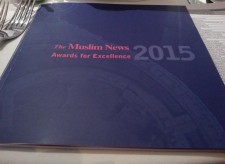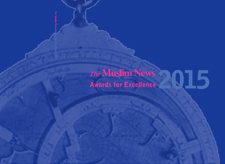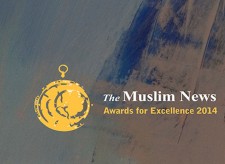Muhammad Khan
Chaos and Counter Revolution: After the Arab Spring. By Richard Falk. London: Zed Books Pp253. PB. 2015. £14.99
Back in 2003, Richard Falk wrote: ‘Whether our concerns are those associated with protecting the global environment against climate change for present and future generations; regulating a runaway world economy; acknowledging the relevance of the religious and civilizational resurgence with respect to political identity; controlling transnational criminality, illegal immigration, and human trafficking; or protecting the vulnerable from Internet abuse , the capacities of the sovereign state, even operating at its most legitimate and responsible levels, are being overwhelmed.’ (The Great Terror War, p173)
Facing such mounting challenges, Dr Falk, who is Professor Emeritus of International Law at Princeton University, US, and author of more than 20 books, called for a change in approach to international politics and diplomacy in order to solve some of the world’s most intractable problems and conflicts. For that to happen, he felt that a ‘drastically different form of global governance needs to be established to create a tolerable future for coming generations…the guardians of the established order, when challenged deeply, fall back upon familiar; they may acknowledge the severity of the challenge, but not by responding creatively, which would involve taking into accounts distinctiveness of the situation. Instead, an easier, familiar, yet disastrous path is chosen, intensifying what has seemed to work in the past. So conceived, such intensification translates into a lethal embrace of a doctrine of unconditional and perpetual war.’ (ibid, p174)
Over a decade later, in the book under review, he argues that the promise of a new start, a fresh beginning in the wake of the Arab Spring has been dashed, confounding expectations and instead of having secular, liberal governments across the Middle East, that troubled part of the world is now reeling from renewed authoritarianism and dictatorships, if not total chaos and confusion. Why? Falk’s analysis of the global geopolitical situation is clear and incisive.
He states – and it is worth quoting him at some length – ‘The American grand strategy in the region has generally been to lend US support to repressive and authoritarian governments so long as their leadership remains friendly to the West and avoids identifying itself actively with the Palestinian struggle. If the regime is perceived as hostile or unable to govern its territory, then it can under certain circumstances become a target of a U.S.-led military intervention designed to produce friendly, compliant, and effective leadership…’ (p14)
Conversely, he argues, despite being dispossessed from ‘historic Palestine in 1948, today, throughout the entire Arab world, not a single government actively supports the Palestinians’ ongoing quest for their entitlements under international law…. The two countries in the region that do seek a resolution that would respect Palestinian rights under international law are, ironically, the two main non-Arab states, Iran and Turkey. Iran’s hostility towards Israel is partly responsible for Iran’s diplomatic isolation and, in recent years, the deterioration of Turkey’s relations with Israel has contributed to a dramatic weakening of Ankara’s previously good standing with the United States and Europe.’ (p14)
Whether one agrees or disagrees with Falk’s analysis, his call for peace and desire to see a world free from incessant conflict, bloodshed and tension needs to be applauded. Consisting of nearly 50 short essays, in this volume, the author provides a detailed summary of geopolitical situation as they unfolded in Egypt, Libya, Syria, Turkey, Iran and Iraq during the second term of the Obama administration. In the process he asks some probing and pertinent questions: such as can humanitarian intervention ever be humanitarian? Is it possible to reconcile the struggle between hegemony and emancipation? How does one address the complex questions of international law and morality in the context of current global tension, insecurity and conflicts?
Recommended reading for politicians, diplomats, policy-makers, academics, journalists, heads of NGOs, charities, religious leaders, observers of global affairs and the masses in general.

















MZA ShakebNovember 2, 2015
A pleasant, but too positive a review